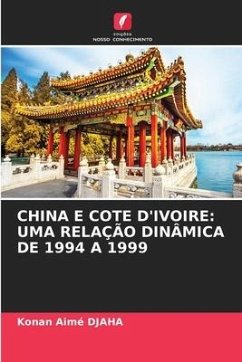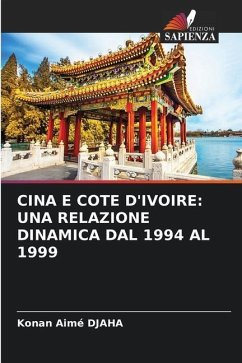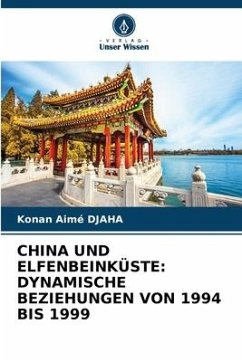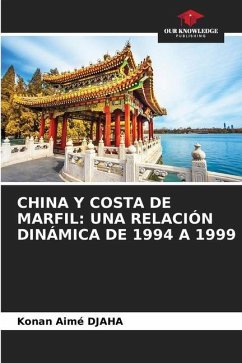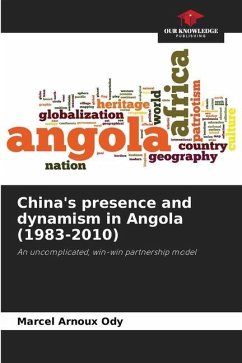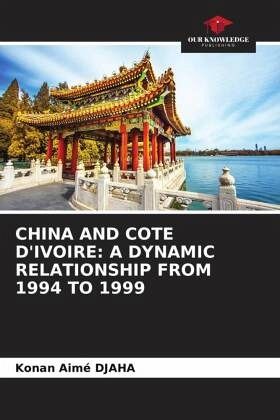
CHINA AND COTE D'IVOIRE: A DYNAMIC RELATIONSHIP FROM 1994 TO 1999
Versandkostenfrei!
Versandfertig in 6-10 Tagen
29,99 €
inkl. MwSt.

PAYBACK Punkte
15 °P sammeln!
On December 7, 1993, Henri Konan Bédié succeeded Houphouët Boigny as President of the Republic of Côte d'Ivoire. Although he was a member of the seraglio, differences in approach separated him from his predecessor. Indeed, younger and with a background in economics, he was less connected to the history of French politics than the late founding father of Côte d'Ivoire. If we add to this the conjunctural metamorphoses following the end of the cold war, the Baule speech and the shock of "Operation Turquoise" in Rwanda in 1994, we can better understand the firm will of the new Ivorian preside...
On December 7, 1993, Henri Konan Bédié succeeded Houphouët Boigny as President of the Republic of Côte d'Ivoire. Although he was a member of the seraglio, differences in approach separated him from his predecessor. Indeed, younger and with a background in economics, he was less connected to the history of French politics than the late founding father of Côte d'Ivoire. If we add to this the conjunctural metamorphoses following the end of the cold war, the Baule speech and the shock of "Operation Turquoise" in Rwanda in 1994, we can better understand the firm will of the new Ivorian president to gradually open Côte d'Ivoire to other partners. The objective of this paper is to understand the dynamics of the relationship between China and Côte d'Ivoire under Bédié's tenure. Our analysis is based on documentary research and some oral sources.



